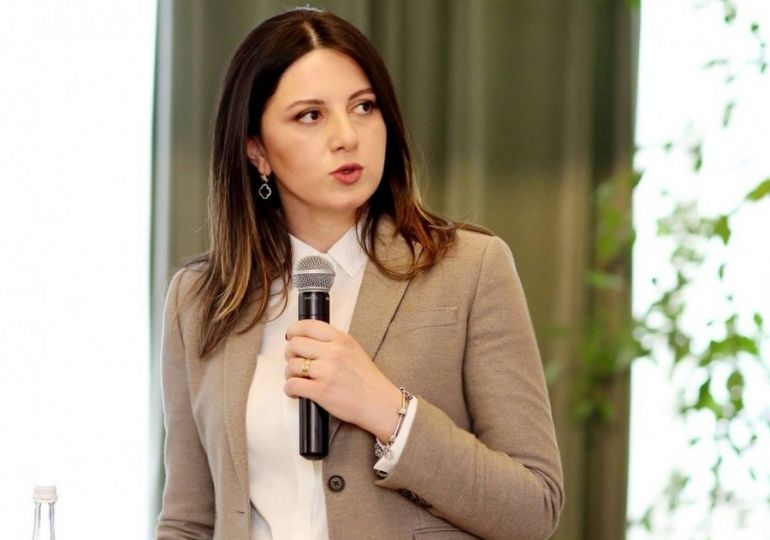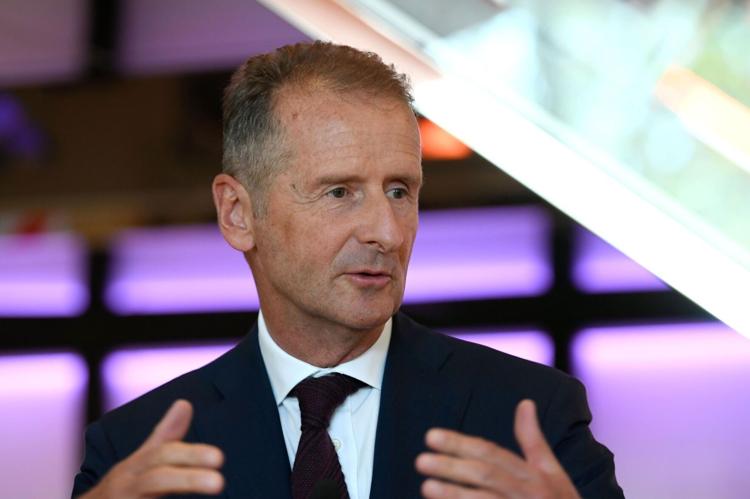What has changed for the bank that serves 2.5 million customers and employs 7,500 people in Georgia because of the COVID-19 pandemic? Zurab Kokosadze and Zurab Masurashvili have the answer.
The year 2020 will go down in history. COVID-19 found its way into nearly every country, infecting 19 million people, and killing more than 697,000 at the time of writing this article. Furthermore, everyone agrees that we are fighting both a health crisis and an economic one.
In order to contain the spread of the virus, most countries temporarily shut down their economies: a few months ago, only food and health-related businesses were fully operational. Today it is difficult to tally up the numbers, but it is safe to say that trillions of dollars have been lost globally. Based on OECD calculations, developing countries will lose $700 billion in external cash flows this year, exceeding the post-2008 global financial crisis figure by 60%.
Currently, it is particularly difficult for businesses to achieve growth and success. Not one, but all parameters are changing: the approach towards conducting business, consumer expectations, and society itself. Businesses are finding themselves under immense pressure to change their structure and strategy in a way that would allow everyone to adapt to these new demands, and all of this at a time when foresight is limited and the number of questions far exceeds answers. In such an unclear and unstable environment, a modern company must be more task-oriented, more innovative, and more adaptable. This is the only way to fight uncertainty and seize opportunities.
The financial system has an uncertain role in the current reality. On the one hand, it has also been hit, as it has lent funds to businesses that are struggling and may at some point be unable to repay loans. Additionally, the COVID-19 pandemic has added a feeling of general uncertainty that renders the financial sector as vulnerable as other businesses. On the other hand, access to capital has become priceless, as has expert advice with regards to decision-making around investment, which enables effective use of resources and achieving the best results possible even in such unprecedentedly difficult times.
The Bank of Georgia mission statement is even more relevant today than it was at the time it was written. “Our mission is to help people realise their potential,” states the bank that serves more than 2.5 million customers and employs 7,500 people.
Forbes Georgia asked Bank of Georgia about the main challenges presented by the pandemic, and the ways of resolving those challenges.
The corporate banking department of Bank of Georgia currently serves more than 3,000 clients. “An event of this magnitude was bound to affect our customers. I do not believe that any industry has remained unaffected,” states the Head of Corporate Banking of Bank of Georgia, Zurab Kokosadze.
Tourism is the industry that has suffered most. This is the case in Georgia and across the world. Galt & Taggart calculates that revenues from tourism will decrease by 64% in Georgia this year. “This affects not only hotels but also restaurants, transport and all other services that support tourism in Georgia. The industry’s revenue accounts for around 20% of the Georgian economy,” Mr. Kokosadze states.
The Head of Corporate Banking at Bank of Georgia currently views finding the right formula for the client to adapt to the changed reality as the main challenge. This is further made difficult by the fact that one solution will not fit everyone. However, Zurab Kokosadze has spent his whole career at Bank of Georgia and knows exactly what enables this organization to withstand any crisis, even an unprecedented one – it is constant communication with the client: “The more information we share with each other, and the more we listen to each other’s ideas, the easier it will be for us to find the right solutions. We have never had to deal with an event of this magnitude, so we need to support one another.”
According to Mr. Kokosadze, Bank of Georgia’s aim to be a supplier of advice and expertise, together with capital and credit, is most valuable for corporate clients today. “We immediately stood out through this approach, which was then copied by our competitors. A relationship like this with the client is ultimately extremely useful for the development of the industry as a whole,” states Mr. Kokosadze, adding that the division by sector of the various fields of communication has not been random: “This makes dialogue with us easier.”
“Nevertheless, the pandemic did affect this simplicity. We had to change our form of communication with the client, using digital channels instead of face-to-face meetings. To be honest, the lack of physical contact initially made things difficult, and it took a while to resolve certain issues. However, all of this became normal with time. The culture of remote meetings could be here to stay, as it can save time and raise efficiency. Overall, this crisis will change many details such as this,” explains Mr. Kokosadze.
Demand for consultancy services is particularly high at the moment – something that the Corporate Banking Department of Bank of Georgia is well aware of. “Most of our time and effort currently goes into this field,” confirms Zurab Kokosadze, reiterating that situational analysis, identifying investment areas and selecting the financing structure is done jointly: “Today it is important for businesses to have a trustworthy and experienced partner with whom they can discuss ideas and look for ways of implementing these ideas correctly and with minimal risk.”
If tourism is the branch of the economy that was worst-affected by the pandemic, small and medium-sized enterprises (SMEs) took the biggest hit out of all business segments. According to the International Trade Centre’s SME Competitiveness Outlook 2020, disruptions in supply chains will cost the segment a total of $126 billion in losses globally. The Georgian Chamber of Commerce and Industry research showed that the main challenges for the domestic SME sector are as follows: cancellation and reduction in the number of orders; sales, including exports; cancellation of bookings; significant increase in the price of raw materials; unstable foreign exchange rates; and higher rent.
Bank of Georgia covers approximately 37% of the domestic SME market. This is a portfolio that is worth ₾3 billion and includes 100,000 businesses. “The main question today is whether these businesses can survive the pandemic and resume their operations,” states the Head of SME Business Banking Zurab Masurashvili. He views the speeding up of digitalisation as the most significant effect of the COVID-19 pandemic. “Around 96% of transactions at Bank of Georgia were already conducted digitally before the pandemic. This figure has now increased to 98%, which is an excellent result,” states Mr. Masurashvili.
Digitalisation covers cash transactions, including the network of 24-hour terminals (so-called ‘pay boxes’) where customers can deposit large amounts of money without having to use traditional cash desks, as well as the sharing of knowledge and experience with businesses, such as online conferences: “We have already organised 19 online conferences that were attended by around 2,000 people. We would have never managed to involve so many individuals through physical conferences and seminars. Imagine how valuable it is to be able to communicate information to such a large audience,” explains Mr. Masurashvili.
The Head of SME Business Banking believes that Georgia lacks new innovative business tools. This is a persistent challenge that has become even more apparent during the pandemic. “We are trying to implement tools that will create demand,” states Mr. Masurashvili, providing specific examples in the shape of the current account business card that has quickly become very popular, POS terminals, as well as combined POS terminals and cash machines that allow a cashier to work from a single device. Bank of Georgia has numerous such examples, including those that required a change in customer behaviour, and therefore, took a while to become popular, but now significantly facilitate business activities.
Forbes Georgia was also interested to hear about the post-pandemic reality and the opportunities that it may bring. According to Zurab Kokosadze, Bank of Georgia will stand behind their clients in this regard too. “We do not claim to know how to do business better than the business owners themselves. Our clients are highly successful individuals who know their businesses perfectly. Our role can only be to create a healthy debate to determine the right structure and the right project that should receive funding. That is how we aim to complement our traditional function of providing access to loans and capital.”
“One thing that we can be sure about during these times of uncertainty is that digitalisation is an irreversible trend. In this regard, Bank of Georgia is already well ahead.”
Zurab Masurashvili states that it is still difficult to foresee opportunities, as we do not know how events will develop. However, “one positive effect of the pandemic has been the rapid transformation that many businesses underwent, learning how to adapt their business models, how to move sales online, how to manage digital content and how to facilitate online operations. All of this will help businesses adapt quickly in the future, whenever needed.”
We remain hopeful that by the time the next issue of Forbes Georgia comes out, the election will be our only worry. One thing that we can be sure about during these times of uncertainty is that digitalization is an irreversible trend. In this regard, the Bank of Georgia is already well ahead.












